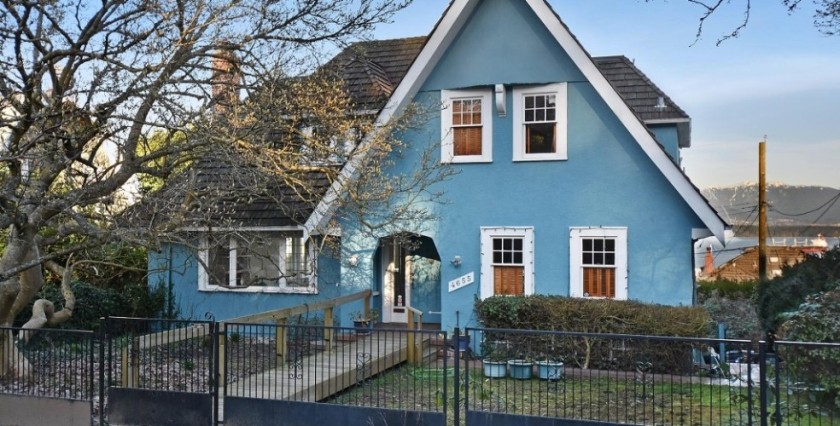The truth is that for all of the tough talk from Li Xinping about stopping the massive outflows of capital from China, some of it probably dark money obtained from dubious enterprises and kickbacks, nothing has changed in China or in the Western cities eager to share in the wealth.
Rich, Young “Fuerdai” Chinese Are Buying Overseas Properties on Their Smartphones
Millennials acquire real estate in other countries as hedge against a weakening currency, homes for their own children when they study abroad

BEIJING— Zheng Xiaohei, a marketer from Urumqi in western China, made his first overseas property investment without so much as a visit.
Mr. Zheng, 29 years old, in March purchased a studio apartment in Thailand for about 650,000 yuan ($94,255) using his smartphone and an app called Uoolu that connects users to overseas property listings.
“Investing in overseas real estate was mainly due to my good impression of Thailand,” Mr. Zheng said.
Founded two years ago, Beijing-based Uoolu is focused on tapping a specific group of home buyers: Chinese millennials looking for foreign properties.
About 70% of Chinese millennials, those born between 1981 and 1998, own a home, the highest share of respondents from nine countries and regions who were surveyed in a recent HSBC study. Chinese parents often register home purchases under their child’s name to prepare the child for marriage and raising a family, which likely boosts the percentage.
Still, a growing sliver of Chinese millennials are looking to buy property abroad. Kevin Lee, chief operating officer of Beijing-based consulting firm Youthology, put the percentage in the low single digits but said it would continue to increase.
The lure? A millennial’s desire to hedge against yuan depreciation and find affordable homes in cities with cleaner air for their children to live in when they study abroad. In the past year, home prices have soared to more than 30 times household income in major Chinese cities.
Uoolu said about 80% of its monthly active users are between the ages of 20 and 39, and that 20,000 customers have bought or are in the process of purchasing overseas property. A similar real-estate platform, Juwai.com, estimates that roughly 30% to 40% of its buyers are millennials.
Cherubic Ventures, a venture-capital firm with offices in Beijing and San Francisco, invested an undisclosed sum in Uoolu. One selling point, said the firm’s founder, Matt Cheng, was Uoolu’s target of reaching young Chinese buyers who are tech savvy and interested in cross-border investments, “but don’t know where to begin.”
Overseas investing isn’t easy at a time when the Chinese government is clamping down on capital flight amid concerns about a weakening currency. Chinese citizens aren’t allowed to transfer more than $50,000 a year out of the country or use those funds to buy overseas property.
However, this increased government scrutiny is “slowing but not cutting off” the surge of investment in U.S. property, said Arthur Margon, partner at Rosen Consulting Group.
“The more the government limits people, the more they want to invest overseas,” said Wang Hao, Uoolu’s 33-year-old chief operating officer.
People often skirt the foreign-exchange rules by, for example, pooling money among family members and friends and separately sending it into overseas bank accounts. Also, Chinese citizens who have studied or worked abroad for a few years might already have bank accounts in other countries and those overseas funds are beyond the Chinese government’s control.
Alan Wang, a 19-year-old college student in Toronto who comes from Shenzhen, said he opened a bank account in Canada for education expenses. Now it is useful for buying property, too. He and his family are thinking about purchasing a home on a budget of about 1 million Canadian dollars (US$730,600) this summer. To do so, he will have relatives send money to his bank account, he said.
Uoolu helps buyers open bank accounts in other countries and apply for mortgages there. Users pay a deposit to reserve the right to purchase a home. The money is sent directly from a buyer’s bank account to the overseas developer—Uoolu says it doesn’t handle the cross-border transaction within the mobile app.
Chris Daish, a real-estate agent at Triplemint in New York, said one of his Chinese clients, an accountant in her mid-20s who works in New York, earlier this year pooled $110,000 from five family members to help buy her a condo in the city.
“It’s a really arduous task even to get a couple hundred grand out,” said Mr. Daish, who emphasized that he doesn’t help clients with money transfers.
A 28-year-old who works in finance in Beijing in February bought two apartments in Bangkok for a total of 5 million yuan ($725,000), one for a vacation home and the other for rental income. She declined to disclose her name out of fear of government retaliation for violating capital controls.
As for some of her friends, she said, “They wish to buy but dare not.”
Source: Rich, Young Chinese Are Buying Overseas Properties on Their Smartphones – WSJ










